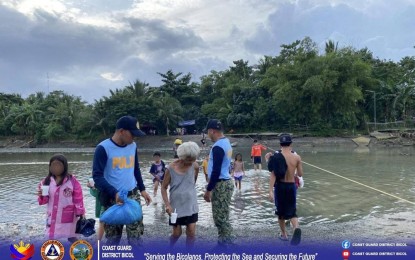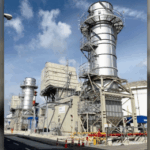LEGAZPI CITY – Nearly 8,000 families across the Bicol Region evacuated as precaution against the impact of Tropical Storm Ramil (international name Fengshen).
Preemptive evacuations were carried out in Albay, Catanduanes and Masbate, affecting 7,777 families or 21,945 individuals from eight local government units.
In Albay, 4,782 families or 12,677 residents were evacuated from the towns of Daraga (49 families), Guinobatan (2,184), Jovellar (2), Libon (54), Malilipot (2,442) and Pio Duran (51).
In Catanduanes, 2,957 families or 9,135 people were evacuated from the municipality of Baras, while 38 families or 133 individuals from Uson, Masbate also moved to safer areas.
Additional reports from other localities that also carried out preemptive evacuations are being awaited.
Meanwhile, assistance continued to be provided to locally stranded individuals in various ports across the region.
At Pio Duran Port, 180 passengers received hot meals, while 350 stranded travelers at Tabaco Port were also served dinner.
The assistance, amounting to PHP34,650, was funded by the provincial government.
At least 3,622 passengers, 1,072 rolling cargoes, and six roll-on/roll-off vessels remain stranded in the ports of Pio Duran and Tabaco; Mobo; Pasacao; and Matnog, Pilar and Castilla.
Ramil made landfall over Gubat, Sorsogon, according to the weather bulletin.
It is forecast to continue moving west northwestward over the landmass or coastal waters of Bicol Region until early morning.
Afterwards, it will pass close or over Polillo Islands in the morning, then make a final landfall in the vicinity of Aurora in the morning or afternoon.
The possibility of landfall over northern Quezon or southern Isabela, instead of Aurora, was not ruled out.
Bicol Region
The Bicol Region is a peninsula in the southeastern part of Luzon, Philippines, renowned for the iconic, perfectly conical Mount Mayon Volcano. Historically, it was a significant trading hub before Spanish colonization in the 16th century, which led to the widespread adoption of Catholicism. The region is also famous for its spicy cuisine, whale shark interactions, and the vibrant Penafrancia Festival.
Albay
Albay is a province in the Philippines located in the Bicol Region, renowned for its iconic Mayon Volcano, a near-perfect cone-shaped active volcano. The province has a rich history, with its capital, Legazpi City, named after the Spanish conquistador Miguel López de Legazpi, who led expeditions to the Philippines in the 16th century. Today, Albay is a hub for tourism and agriculture, celebrated for its natural beauty and spicy Bicolano cuisine.
Catanduanes
Catanduanes is an island province in the Philippines known as the “Land of the Howling Winds” due to its frequent exposure to typhoons. Historically, it was a former sub-province of Albay and was established as an independent province in 1945. The island is celebrated for its rugged natural beauty, featuring pristine beaches, surfing spots like Puraran Beach, and lush, mountainous landscapes.
Masbate
Masbate is a province in the Philippines known for its cattle ranching and annual Rodeo Masbateño festival, which celebrates its cowboy culture. Historically, its economy was shaped by its gold mining industry, with evidence of mining activities dating back to the Spanish colonial period. The island’s culture is a vibrant mix of influences from the neighboring Bicol and Visayas regions.
Pio Duran
Pio Duran is a municipality located in the province of Albay, in the Bicol Region of the Philippines. It was officially created as a separate town in 1948, named in honor of Pío Duran, a Filipino lawyer, revolutionary, and statesman who served as a representative in the Philippine Assembly. The area is known for its coastal landscapes and is part of the scenic topography surrounding the Mayon Volcano.
Tabaco Port
The Tabaco Port is a historic seaport located in the province of Albay in the Philippines. It served as a vital trading hub during the Spanish colonial era, known for its role in the galleon trade and the shipment of abaca hemp. Today, it remains an important gateway for commerce and transportation in the Bicol Region.
Polillo Islands
The Polillo Islands are an archipelago in the Philippines, located off the eastern coast of Luzon in Lamon Bay. Historically, the islands were a significant trading post before Spanish colonization and were later administered by Franciscan missionaries, who established several towns. Today, the islands are known for their rich biodiversity, including forests and marine ecosystems, and their economy is primarily based on fishing and agriculture.
Aurora
Aurora is a natural light display predominantly seen in high-latitude regions, such as the Arctic and Antarctic. Known as the aurora borealis in the north and aurora australis in the south, these dazzling light shows are caused by collisions between charged particles from the sun and gases in Earth’s atmosphere. Historically, they have inspired numerous myths and legends among indigenous cultures, often seen as spirits or celestial messengers.






